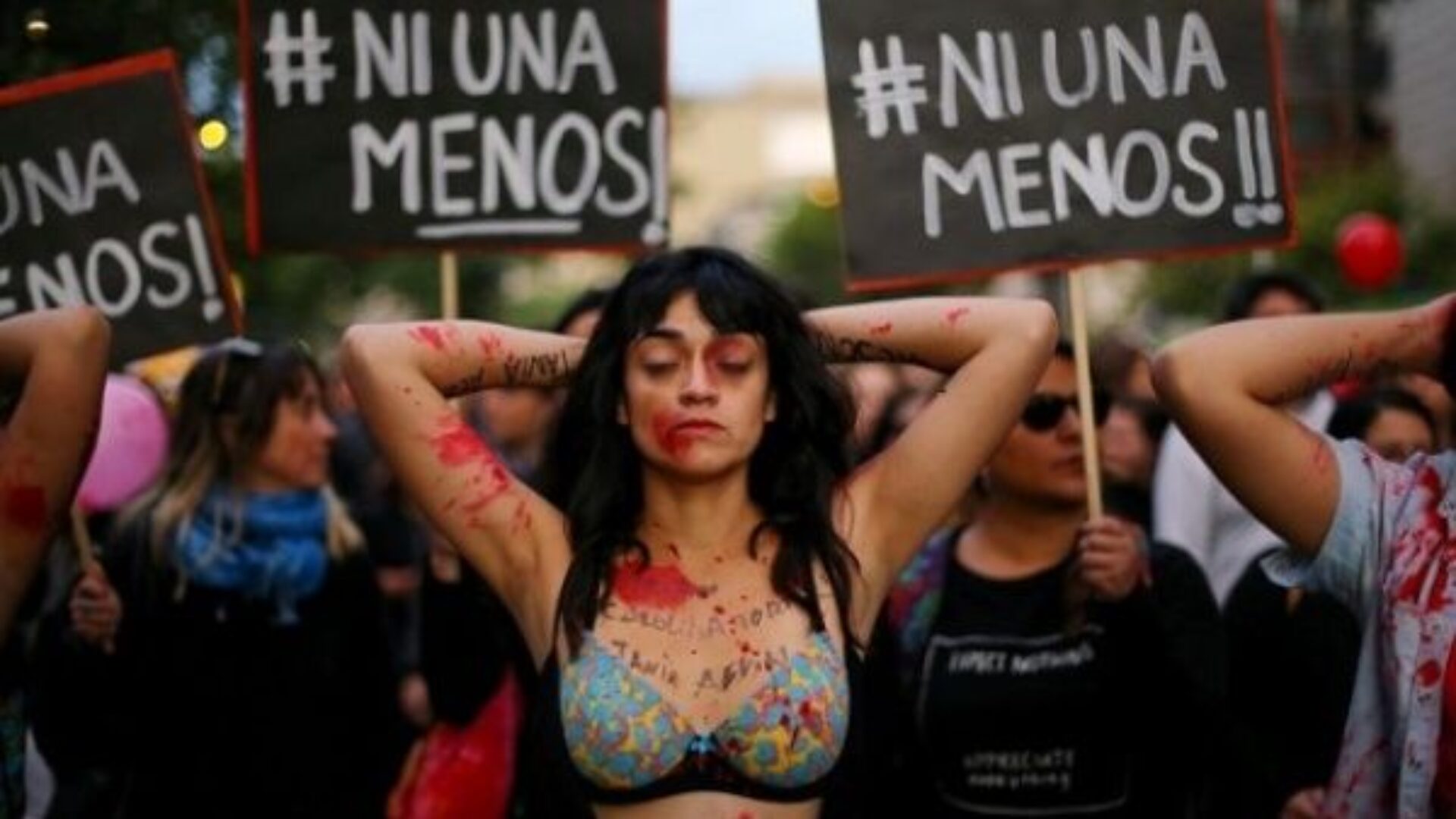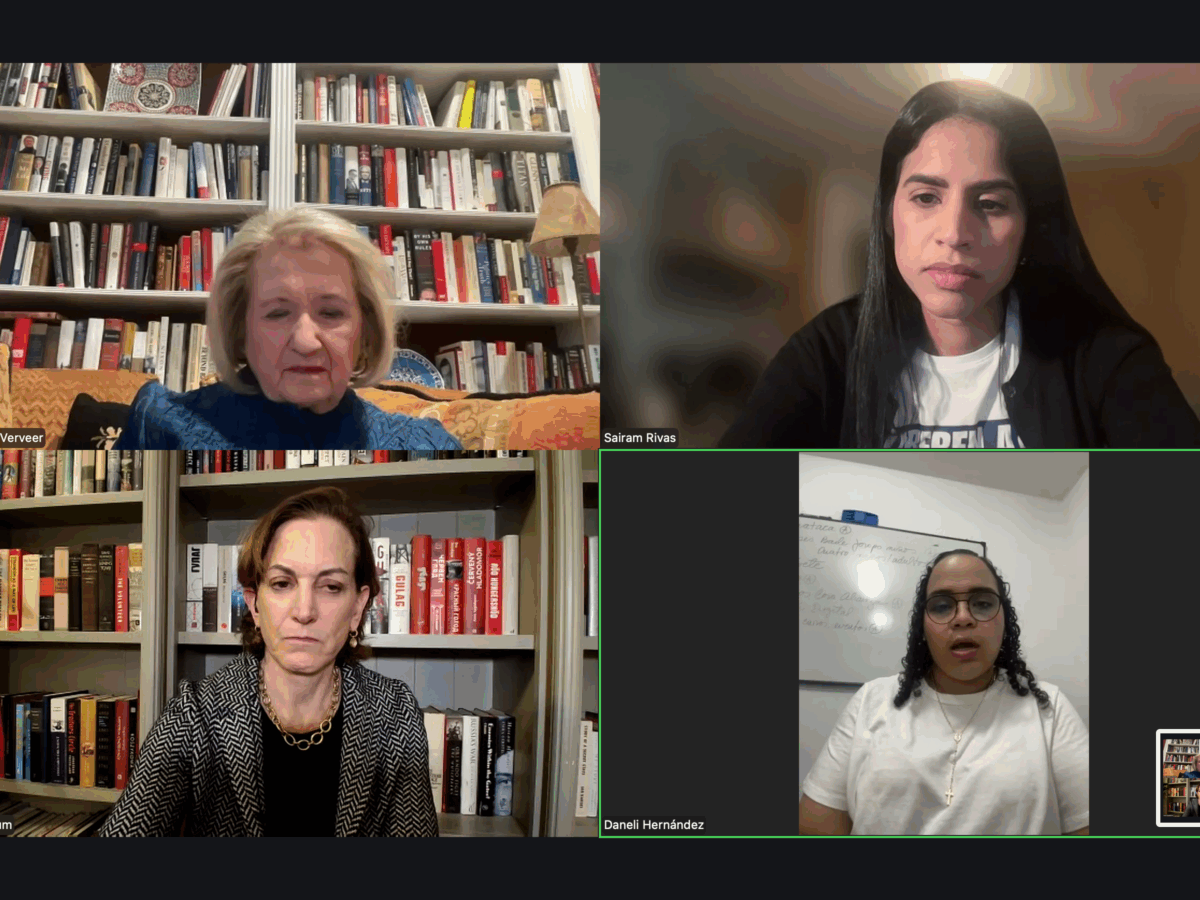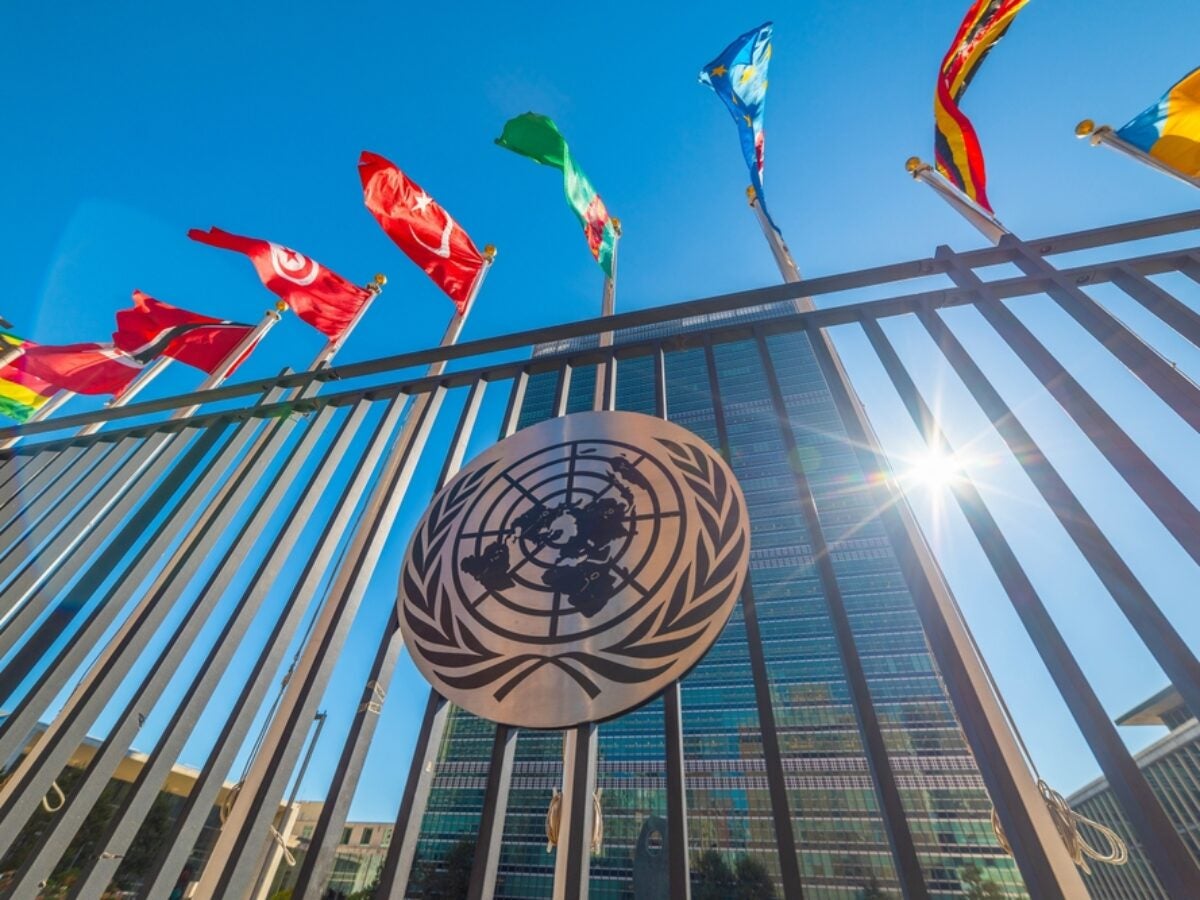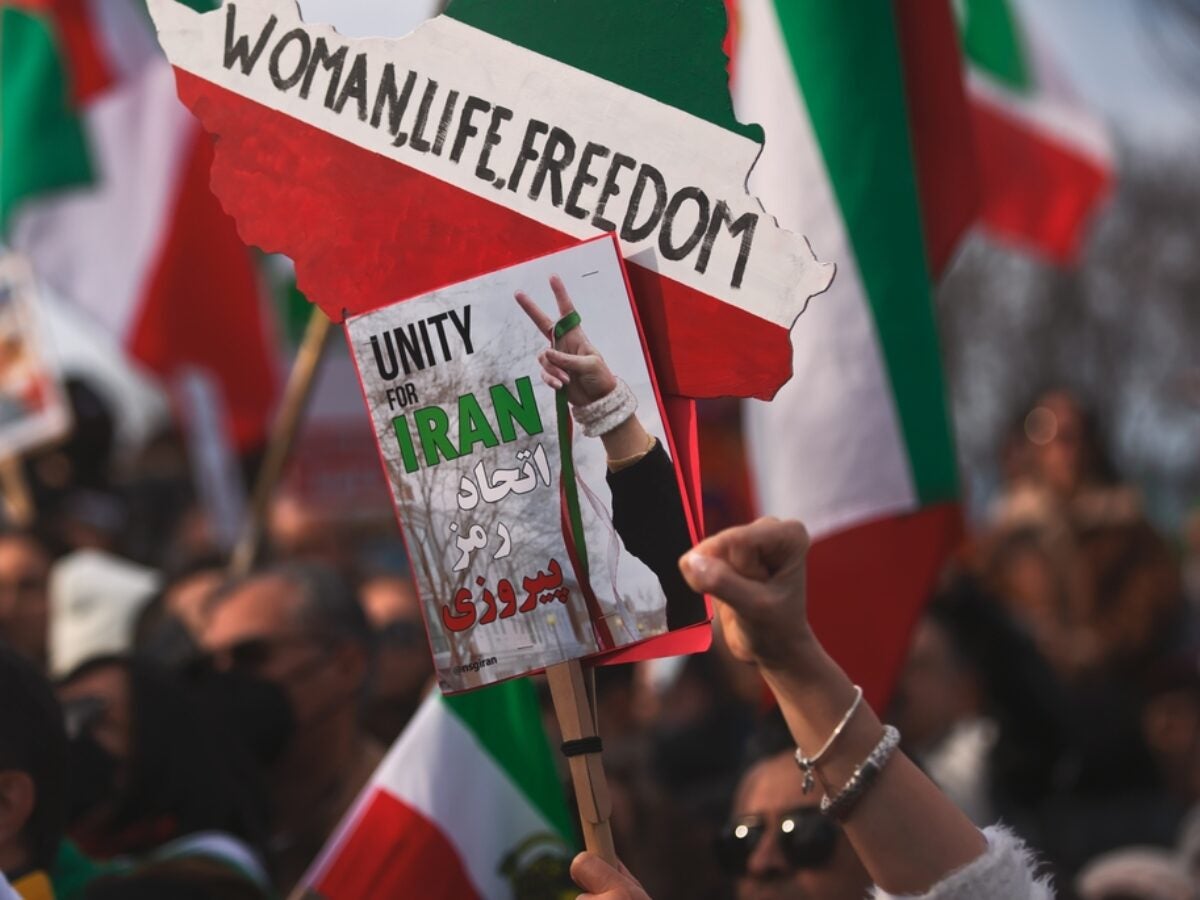U.S. Curtails Asylum for Domestic Violence Survivors, Imperils Lives

In one of the latest attacks by the Trump administration against vulnerable immigrant populations, last month Attorney General Jeff Sessions took extraordinary measures to curtail domestic violence survivors’ ability seek asylum in the United States. Issuing an unprompted and sweeping opinion, Sessions reversed two key decisions by the Board of Immigration Appeals concerning gender-based asylum protections. These decisions had recognized that women who endured severe violence at the hands of their perpetrators, and who could not avail themselves of their own government’s protection, could qualify for asylum on account of their status in a “particular social group” based on international refugee law.
The first case overturned by Sessions concerned “A.B.,” a Salvadoran woman who escaped physical, psychological, and emotional abuse by her husband. After A.B. divorced her husband and moved to another part of El Salvador, her ex-husband pursued her, continuing to harass and rape her, and even threatening to kill her. A.B. successfully obtained multiple restraining orders again her husband, but the police never enforced them. In fact, seeking police assistance was not only futile for A.B. but dangerous in and of itself because her ex-husband’s brother was a Salvadoran police officer. He also threatened to kill A.B., telling her that he would help her ex-husband dispose of her body if she did not keep her mouth shut about the abuse.
The second case concerned “A.R.C.G.,” a Guatemalan woman who was repeatedly beaten and raped by her husband. Married at 17, A.R.C.G. endured weekly abuse even after her child was born. At one point, her husband doused her with paint thinner, leaving chemical burns on her breast. Another time, he broke her nose. A.R.C.G. called the police, but they did not arrest her husband. Instead, they told her they “would not interfere in a marital relationship.” When A.R.C.G. tried to flee to another part of Guatemala, her husband found her. He threatened to kill her if she tried to call the police again. Ultimately, she fled the country.
Both of these women’s harrowing ordeals have been recognized by immigration courts as establishing valid grounds for asylum protection in the United States. But Sessions’ opinion dramatically reversed U.S. policy. Upending established legal precedents, he stated that asylum-seekers fleeing intimate partner violence “generally . . . will not qualify for asylum.” Several women’s immigrant groups and human rights advocates immediately decried the decision, including the Tahirih Justice Center, the Women’s Refugee Commission, and the National Network to End Domestic Violence, warning that “women and children will die as a result of these policies.”
The Beginning of the End? Coordinated Efforts to Curtail Asylum for Vulnerable Populations
In his opinion, Sessions did not stop at attempting to dismantle protections for women fleeing their abusers. He went even further, suggesting that similar asylum claims are valid only when they arise “independently of the alleged underlying harm.” In other words, he argued, those fleeing violence and abuse cannot use the fact of their victimization to establish their legal claim for asylum protection. This stunning assertion injects incredible uncertainty into long-standing asylum jurisprudence. It is as paradoxical as it is cruel: How can a woman possibly separate the circumstances of her abuse from her underlying claim of persecution? The two are inextricably connected.
Unfortunately, this move by Attorney General Sessions does not exist in a vacuum. Instead, it appears to be an opening salvo in the Trump administration’s coordinated attack on asylum protections for those fleeing violence, especially from Central America. For instance, a draft regulation being developed by officials at the Department of Homeland Security would not only reject asylum-seekers’ claims based on domestic violence, gang violence, or interpersonal victimization, but would also punish asylum-seekers by banning them from reopening their case or bringing a new claim of persecution.
Already, advocates expect that Sessions’ opinion will be used to undermine protections for individuals fleeing gang violence and child abuse. Many also fear that, over the long term, the Attorney General’s decision could be a tool to deny protection to women fleeing other forms of violence and oppression, such as female genital mutilation (FGM), child marriage, femicide, honor killings, forced labor, and human trafficking. For example, a landmark 1996 immigration decision established that a girl escaping her tribe’s customary practice of FGM could establish a claim of asylum in the United States. Realistically, there is no way for a woman who applies for asylum to escape FGM to divorce the underlying harm of FGM from her claim. So far, this and other non-domestic violence claims do not appear to be under immediate threat. But taking Sessions’ logic to its most extreme, the administration could conceivably oppose any claims in which women are claiming persecution based on severe forms of violence. That is why advocates and immigration attorneys must be especially vigilant in challenging this recent opinion as an opening to further erode other well-established gender-based asylum norms.
Creating Fear, Confusion and Uncertainty for Survivors of Abuse
Over the past several weeks, lawyers, judges, advocates, and government officials alike have all struggled to understand the full impact of the Attorney General’s opinion. Legal advocacy groups, while roundly criticizing the decision, have observed that the operative language is fairly narrow, and that creative lawyering can help to limit its scope even further.
At first, the Department of Homeland Security stopped short of officially endorsing the Attorney General’s opinion in its entirety, issuing guidance explaining that domestic violence-related asylum claims may still be successful, but only when considered on a case-by-case basis. But just a few weeks later, in an about-face, it followed up with a new directive, instructing asylum officers that all domestic violence and gang-related claims “will be immediately rejected.”
Although the long-term impacts of the decision are still unclear, reversal of this long-standing policy endangers the lives of women fleeing extreme violence. For many women, claims of violence that would have been successful could now be eliminated. In fact, the decision is already reverberating at the southern border, where the administration has implemented a “zero tolerance” policy that separates children from their parents. More than 3,000 children have been taken from their parents and placed in detention centers or foster care, while their parents are criminally prosecuted—regardless of whether they are fleeing violence and persecution. Under this new policy, if a survivor of domestic abuse attempts to cross the border and claim asylum, rather than being provided a credible fear interview, she will immediately be placed in the custody of the Bureau of Prisons and subject to criminal prosecution. Once convicted, she will then be sent into the custody of Immigrations and Customs Enforcement. Only then will she have the ability to claim a credible fear of returning to her home country. In other words, she is effectively condemned and branded a criminal before she can even be heard.
Attorney General Sessions’ opinion also compromises women’s ability to receive a fair credible fear determination. Recent reports indicate that attorneys with the Department of Homeland Security are informing women that their domestic violence-related claims are now “foreclosed” by the decision. Some immigration judges have even begun issuing notices suggesting that domestic violence claims will now be treated with special heightened scrutiny. With no recourse, a woman would be placed into removal proceedings and sent back to the country she fled within a matter of days; and her future, once filled with the promise of freedom from fear, will be a living nightmare.
Sessions’ Opinion Contravenes American Values and Leadership on Gender Issues
By eroding gender-conscious asylum protections, Attorney General Sessions has called into question the United States’ role as a leader in affirming rights for women across the globe. This notion was cemented in U.S. policy in 1995, when then-First Lady Hillary Rodham Clinton pronounced on the world stage that human rights were women’s rights, and women’s right were human rights. Preventing women from seeking relief undermines the United States’ long-standing policy and fails to recognize the unique challenges that women face when fleeing persecution, harmful cultural practices, and other forms of abuse perpetrated by non-government actors.
Sheila Menz is an attorney in Washington, D.C. She served as an Obama administration appointee at the State Department from 2009-2012, and before that, was an aide to then-Senator Hillary Rodham Clinton.
Explore More

Acclaimed Journalist Anne Applebaum and Women Human Rights Defenders Discuss Implications of…
The people of Venezuela are uncertain about their political, social, and economic…

GIWPS Analysis: The US is Pulling Back from Multilateralism
This week, the White House issued a presidential memorandum announcing that the…

GIWPS Analysis: Iran’s Escalating Political Repression and the Arrest of Narges Mohammadi
Iranian authorities detained 2023 Nobel Peace Prize awardee Narges Mohammadi during a…